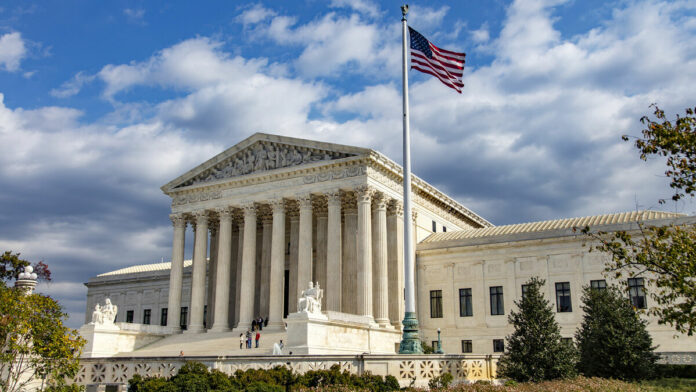(USA Herald) – A COVID-19 coverage dispute between Erie Insurance Co. and a group of businesses has come to a temporary halt after a Pennsylvania federal judge agreed to pause the multi-district litigation. U.S. District Judge Mark R. Hornak granted the proposed stay which will remain in effect until the state Supreme Court weighs in on the appeal of a separate suit and the Third Circuit decides whether to rehear its decision against a group of policyholders.
This ruling has come as a result of the recent Third Circuit decision and the mixed decisions from Pennsylvania appellate courts. The parties involved believe that this approach maximizes judicial efficiency and reflects the potential significance of a decision by either court on further proceedings in this case.
The COVID-19 coverage dispute has been a long and ongoing battle between Erie Insurance Co. and a group of businesses who have been seeking coverage for their lost income during the pandemic-related closures. In October, Judge Hornak dismissed the breach of contract claims against Erie, but the bad faith claims had been set aside and remain pending. The bad faith claims will not be addressed until after the stay is lifted, as per Judge Hornak’s statement.
In November, an appellate court in Pennsylvania reversed MacMiles LLC’s win against Erie Insurance Exchange for the loss of use of its property, Grant Street Tavern, during the pandemic. The court also affirmed a dentist’s win against different insurers. Since then, MacMiles has filed a petition to appeal to the Pennsylvania Supreme Court, which Erie opposed, according to court documents.
In January, the Third Circuit found that a group of New Jersey and Pennsylvania businesses were not entitled to insurance coverage for their lost income during pandemic-related closures, ruling that the COVID-19 virus and its associated government closure orders did not create a “direct physical loss of or damage to” their properties. The businesses have since asked for an en banc rehearing of the decision.
The COVID-19 coverage dispute raises serious questions about the insurance industry’s approach towards policyholders during the pandemic. The issue of bad faith conduct by insurers has been a growing concern for policyholders, who have faced numerous challenges in obtaining coverage for their pandemic-related losses.
Investigative journalist Samuel Lopez of the USA Herald has been closely following the COVID-19 coverage dispute between Erie Insurance Co. and the group of businesses. “This case highlights the need for policyholders to stand up against the bad faith conduct of insurance companies,” says Lopez. “Insurance companies must be held accountable for their actions and ensure that policyholders receive the coverage they paid for.”
The businesses are represented by Adam M. Moskowitz, Howard M. Bushman of The Moskowitz Law Firm PLLC; Kelly K. Iverson, Gary F. Lynch of Lynch Carpenter LLP; Richard M. Golomb, Kenneth J. Grunfeld of Golomb Spirt Grunfeld; William F. “Chip” Merlin Jr. and Shane Smith of the Merlin Law Group; John P. Goodrich and Lauren R. Nichols of Jack Goodrich & Associates; and George L. Stewart II of Reed Smith LLP. Erie is represented by Adam J. Kaiser, Tiffany L. Powers, and Kristin A. Shepard of Alston & Bird LLP and Tara L. Maczuzak, and Richard W. DiBella of DiBella Weinheimer.
The COVID-19 coverage dispute between Erie Insurance Co. and the group of businesses is a crucial case that could set a precedent for future insurance disputes. Policyholders across the country will be keeping a close eye on the outcome of this case, as it could have a significant impact on their ability to receive the coverage they have paid for.
The decision by U.S. District Judge Mark R. Hornak to pause the multi-district litigation until the state Supreme Court weighs in on a separate appeal has been met with mixed reactions. While some see it as a necessary step to ensure judicial efficiency, others are concerned that it may prolong the wait for justice for policyholders who have already suffered substantial losses due to the pandemic.






